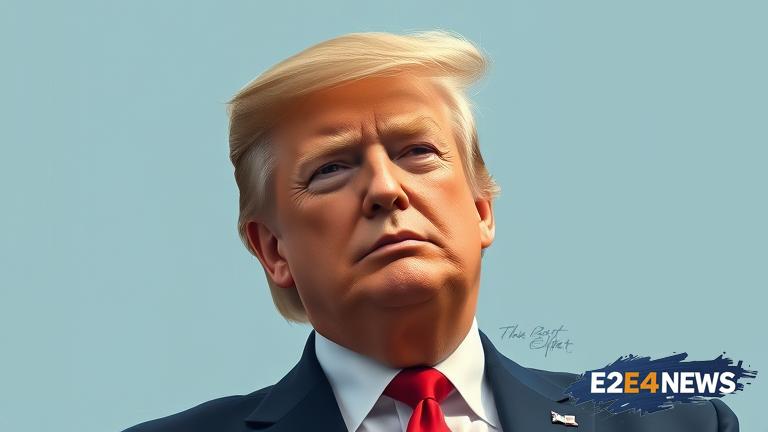The economy during Donald Trump’s presidency was a topic of much debate and discussion. Trump’s character, in particular, had a significant impact on the economy, with his unconventional approach to policy-making and his tendency to prioritize his own interests over the nation’s. One of the most notable effects of Trump’s character on the economy was his approach to trade policy. He implemented several tariffs on imported goods, which led to a trade war with China and other countries. This had a significant impact on the US economy, with many businesses and industries feeling the effects of the tariffs. Despite this, Trump remained committed to his approach, citing the need to protect American jobs and industries. However, many experts argued that the tariffs would ultimately harm the US economy, rather than help it. Another area where Trump’s character had an impact on the economy was in his approach to regulation. He implemented several deregulation measures, which were intended to stimulate economic growth. However, many of these measures were criticized for being overly broad and for prioritizing the interests of corporations over those of consumers and the environment. Trump’s character also played a role in his approach to fiscal policy. He implemented a significant tax cut, which was intended to stimulate economic growth. However, the tax cut was criticized for being overly generous to corporations and the wealthy, and for increasing the national debt. Despite this, Trump remained committed to his approach, citing the need to stimulate economic growth and create jobs. The economy under Trump’s presidency was also marked by significant increases in inequality. The wealthy saw significant gains, while the poor and middle class saw much more modest gains. This was due in part to Trump’s tax cut, which was criticized for being overly generous to the wealthy. Trump’s character also played a role in his approach to the federal budget. He implemented several budget cuts, which were intended to reduce the national debt. However, many of these cuts were criticized for being overly broad and for prioritizing the interests of corporations over those of consumers and the environment. The economy under Trump’s presidency was also marked by significant instability. The stock market experienced several significant downturns, and the economy as a whole was marked by significant uncertainty. This was due in part to Trump’s unpredictable approach to policy-making, as well as his tendency to prioritize his own interests over the nation’s. Despite this, Trump remained committed to his approach, citing the need to stimulate economic growth and create jobs. The impact of Trump’s character on the economy was not limited to the US. His approach to trade policy, in particular, had significant effects on the global economy. Many countries felt the effects of Trump’s tariffs, and the global economy as a whole was marked by significant uncertainty. The World Trade Organization (WTO) criticized Trump’s approach to trade policy, citing the need for a more cooperative and multilateral approach. The International Monetary Fund (IMF) also criticized Trump’s approach, citing the need for a more stable and predictable approach to policy-making. In conclusion, the economy under Trump’s presidency was marked by significant changes, and his character played a crucial role in shaping the country’s financial landscape. While Trump’s approach to policy-making was often unconventional and unpredictable, it had significant effects on the US economy and the global economy as a whole. As the US continues to navigate the complexities of the global economy, it is clear that Trump’s character will have a lasting impact on the nation’s financial landscape.





